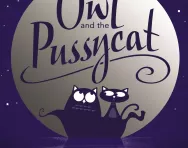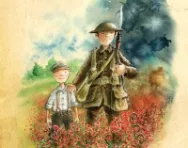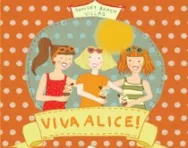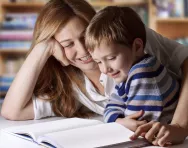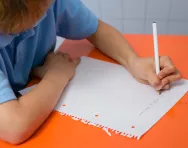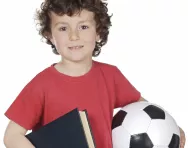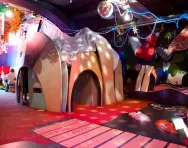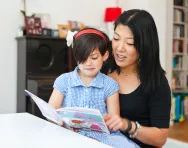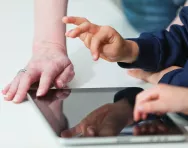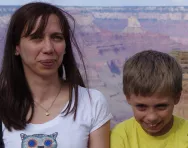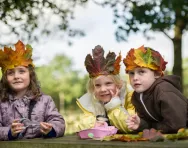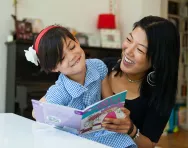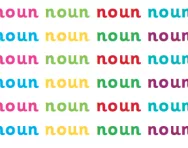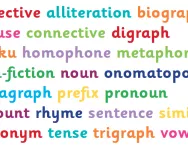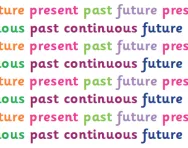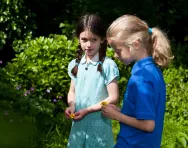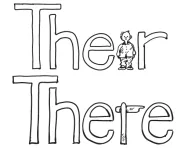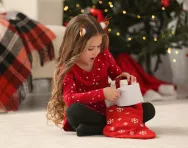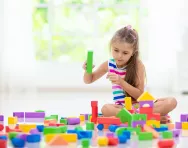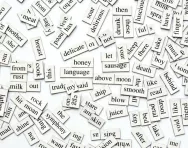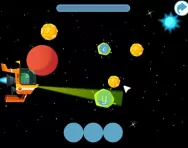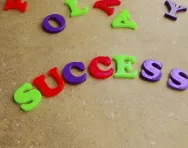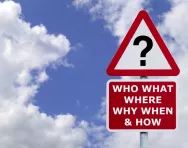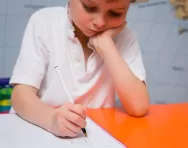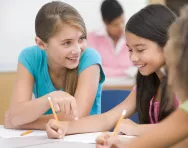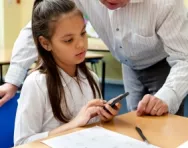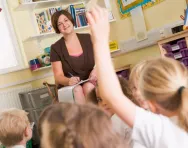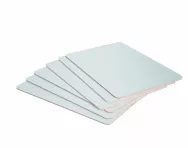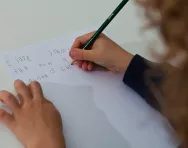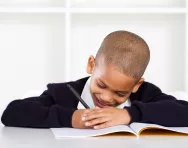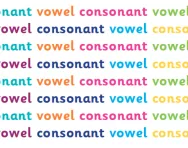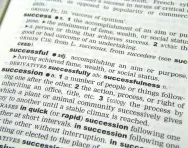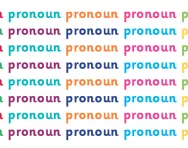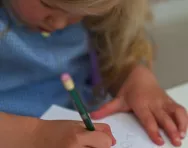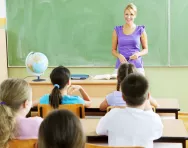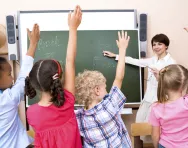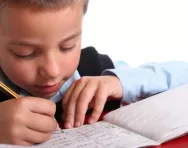Year 2 English articles
7 classic poems to read with primary-school children
Poems come in all shapes and sizes. Some rhyme, some don't. Some are old, some are new. Introduce your child to a world of words to whisper, savour and inspire with some classic poems, chosen for primary-school children of all ages by poet Helen Mort, editor of The Owl and the Pussycat: An anthology of poems that every child should read. Enjoy!
Changes to KS1 SATs in 2025
Year 2 children in England may take KS1 SATs in May, although they are now optional. Here's what parents need to know about the English and maths assessments in Y2.
Best children's books about WWI
Our pick of powerful, informative and evocative novels, anthologies and non-fiction books will help primary-school children understand the facts about the Great War, as well as the everyday lives of the people who lived through it in the trenches and on the Home Front.
14 of the best books for children for summer 2014
Make this summer a fiction-packed break with our pick of the best kids' books to read on the beach, by a lake, up a mountain, in a tent or just in your own back garden! From laugh-out-loud adventures to murder mysteries and junior chick lit, we've got great suggestions for every genre and every child.
4 ways to bring poetry to life for your child
With poetry on the new national curriculum for children as young as five, poet Adisa the Verbaliser explains how to make poetry magical for your child.
5 ways to turn your child into a budding writer
While some children love nothing more than sitting down with a blank sheet of paper and a pen, others are filled with dread at the thought of writing much more than their name at the top of their worksheet. Teacher and author Alison Wilcox shares her tips for encouraging the writing bug.
Best kids' books about football
Would your child rather be kicking a ball than picking up a book? Get them excited about reading with fiction and non-fiction titles about the beautiful game, from World Cup histories and step-by-step technique manuals to brilliant football fiction for all ages.
Museums reviewed by parents: Discover Children's Story Centre
Bring learning to life with a visit to one of our parent-recommended museums. We love Children's Story Centre Discover, a haven for bookworms, story-tellers and adventurers in Stratford, north east London.
Best reading scheme books for early readers
Does your heart sink at the thought of another reading practice session after school? Don't lose heart, says primary school teacher, mum and Reading Chest founder Liz Walker. Today's reading scheme books offer exciting stories, non-fiction facts and loads more. Here's how to make the most of early readers, whether your child has just started to blend sounds or is ready to graduate to 'real' books.
Why games-based learning is great for your child
If you despair of the amount of time your child spends attached to their tablet, think again: games and apps are an important part of their learning journey, from pre-school to secondary school, and can help to improve problem-solving skills and communication, as well as boost motivation. Lucy Dimbylow finds out why gaming means learning in the twenty-first century.
'He struggled to form his letters correctly and his handwriting was illegible'
Cécile Watson, from Bromley in Kent, describes her experience of the SEN and school system with her son Jean-Pierre, 11, who has dysgraphia, and shares her tips for other parents.
11 easy tips to make Shakespeare fun for kids
You don't have to be a theatre buff or a classic-literature lover to appreciate Shakespeare's wonderful stories, compelling characters and beautiful language. We say it's never too early to introduce children to the Bard, so here are 11 great ways to help under-12s fall in love with his verses.
What are exception words?
As your child learns to read you might hear them talk about the 'exception words' they are learning. We explain what exception words are, what role they play in phonics learning and how you can support your child's developing reading and spelling skills at home.
SATs revision: your KS1 SATs English helper
KS1 SATs are no longer compulsory, but some schools may still choose to administer them. If so, you can help child prepare for the Year 2 English SATs with some simple and effective reading, writing and spelling activities.
What is a noun?
Get common nouns and concrete nouns clear in your mind and understand proper nouns and pronouns - our simple guide explains everything primary-school parents need to know about nouns and how to form the plural forms correctly.
Primary literacy glossary for parents
From adjectives to writing frames, TheSchoolRun's primary-school literacy glossary offers a complete guide to all the concepts children are taught in EYFS, KS1 and KS2 English. Brush up on your own literacy skills, clear up homework confusion and understand exactly what your child is learning at school by reading our basic definitions (with links to more detailed explanations, teachers' tips and examples).
What is verb tense?
Verb tenses tell us when an action took place in the present, past or future. Help your child understand the main verb tenses (simple present and present continuous, simple past and past continuous, simple future and future continuous) and understand which tenses are used in different kinds of texts.
Blending sounds: teachers' tips
Struggling to help your child 'blend' sounds when they're reading aloud? Primary teacher Phoebe Doyle offers tips to help you support their phonics learning and early reading at home.
The parents’ guide to developmental language disorder
A significant percentage of children are thought to be affected by DLD, but it often goes unrecognised. We look at how to spot the signs and help your child.
Memory aids for kids
Rhymes, acrostics and other mnemonics could all help your child to remember important facts, from tricky spellings to grammar rules. We asked the experts why they work so well – and for their top 10 memory aids.
100 of the best educational toys: stocking fillers
Don't forget the stockings! These little toys and games are the perfect size to slip in, yet still offer plenty of educational opportunity. Encourage observation, curiosity, dexterity and creativity with these brilliant gifts, whatever age your child is.
100 of the best educational toys: KS1
These games and toys consolidate early reading skills, help with simple maths calculations, boost strategic thinking and even introduce your KS1 child to engineering and geology! For literacy and numeracy fun in toy form, these are the games to try.
13 ways to make grammar fun for children
With all Year 6 children required to take a spelling, punctuation and grammar test and more emphasis on the technical side of English in the primary curriculum, we asked the experts for their top tips and practical activities to help your child engage with – and enjoy – grammar.
Best phonics learning tools
Want to practise phonics at home? We’ve picked some of the best games, apps, tools and books to help you reinforce what your child is learning at home – the fun way!
What is a success criteria / WILF?
Find out what success criteria (also known as the 'WILF') are and how your child's teacher will use success criteria to boost learning focus.
What is a Learning Objective / WALT?
Heard your child talk about their LO, or their WALT? Teachers use learning objectives to help children understand what is expected of them in the classroom. Find out what a learning objective (or WALT) is and how learning objectives are used in primary school.
What is a DUMTUM?
Find out what a DUMTUM is and how this technique will help your child to set out their work correctly.
What are talk partners?
Find out what a talk partner is and why having a talk partner will benefit your child's learning in the classroom.
What is 'scaffolding' learning?
Find out what 'scaffolding' learning means and how teachers use this technique in the classroom to help children master different skills.
What are interactive whiteboards?
Find out what interactive whiteboards are and how they enhance learning in the classroom.
What are mini-whiteboards?
Find out what mini-whiteboards are and how they enhance learning in the classroom.
What is text-marking?
Text-marking is a technique taught in schools to help children recognise the different features of a text. Find out how teachers explain the technique to children and how it can help with their comprehension of different types of texts.
What is Look, Cover, Write, Check?
Look, Cover, Check, Write is a strategy your child will be taught in schools to help them learn spellings. Find out how the technique is taught in the classroom so you can reinforce learning at home in the same way.
What are vowels and consonants?
We explain what vowels and consonants are and how primary-school children are taught to identify CVC, CCVC and CVCC words, vowel digraphs and consonant digraphs.
What is a root word?
We explain what a root word is and how prefixes and suffixes can be added to root words to turn them into words with different meanings.
What is a pronoun?
We explain what a pronoun is and how primary-school children are taught to use pronouns to avoid repetition in their written work.
What is extended writing?
At school your child will be expected to produce pieces of extended writing, which is a writing task completed independently. Find out how teachers will help your child develop this skill and how you can support their learning at home.
What is modelled writing?
Modelled writing is a technique teachers use to model for children how they could carry out the thinking process when writing a story. See an example of how this process could work.
What is shared writing?
Shared writing is a collaborative technique teachers use to help children develop ways to improve their writing. See an example of shared writing at work and an explanation of how it gives children a model of what they are expected to write.
What is a letter string?
Learning certain letter strings will help your child with their reading and spelling. Find out about different letter strings and tips to help your child remember them.
